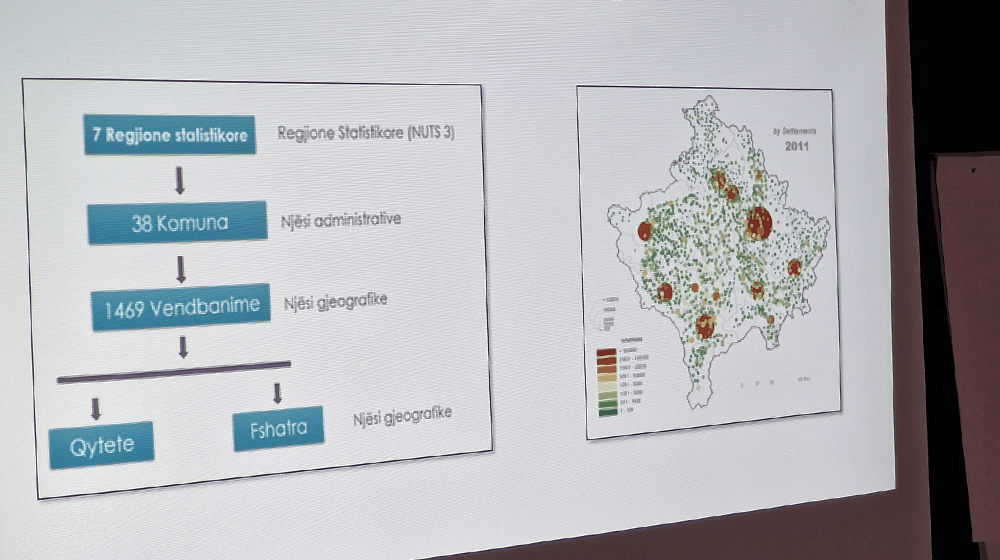Following the successful completion of Kosovo's 2024 Population Census, UNFPA is reinforcing its commitment to data-driven policy development, with a key focus on one of the key priorities of the Kosovo Agency of Statistics: classification of urban and rural settlements. This important UNFPA-supported process that the Agency and related Kosovo institutions align international practices with the unique needs of the citizens, setting the stage for equitable and sustainable development.

The 2024 census, carried out with UNFPA's multifaceted support, marked a major achievement for Kosovo, providing essential data to guide future public policies. The census covered over 99.8% of all coded locations in Kosovo, including newly registered properties, although there were significant boycotts in some northern municipalities. The preliminary results show Kosovo's population at 1,586,659, with a nearly equal gender distribution: 795,046 males and 791,614 females. The average age has risen from 29.97 years in 2011 to 34.82 years in 2024, reflecting notable demographic changes. Census data suggests a population shift from mountainous areas to lowland settlements, and from peripheral/border municipalities towards the midlands. This trend has led to population growth in nine municipalities.
As Kosovo institutions move into the post-census phase, the classification of settlements – spearheaded by the Agency of Statistics – will be critical in shaping policies that enhance access to services, infrastructure development, and regional planning. By differentiating urban and rural areas based on clear benchmarks, including administrative criteria, population size, economic activity, and ultimately land use and population density, Kosovo will have developed the full dataset of the 2024 census and thus be better equipped to create balanced, inclusive policies that reflect the diverse needs of the population.
UNFPA remains deeply involved in this process, supporting the Agency and other institutional stakeholders in ensuring that the data from the census is utilized effectively to guide decision-making at both national and local levels. This effort will help Kosovo institutions establish a foundation for long-term planning, enabling more accurate resource allocation and improved living standards for both urban and rural communities. In this context, the census has also recorded 353,702 households with an average household size now at 4.5 members, down from 5.9 in 2011, indicating a shift in household composition.
The 2024 census has laid the groundwork for this important work, and UNFPA will continue to play a central role in supporting Kosovo’s institutions as they translate these findings into actionable policies. By focusing on settlement classification, UNFPA is helping Kosovo create a more equitable, data-informed future, contributing to the achievement of the Sustainable Development Goals (SDGs).
There are further plans ahead. Upon publication of the final results of the 2024 census – expected in December 2024 – the Kosovo Agency of Statistics will issue a series of reports informed by the comprehensive census data. UNFPA will support this work through thematic analyses that will be incorporated in the reports and associated UNFPA publications, looking in particular at gender-related data and data related to youth, the elderly, and demographic resilience.


